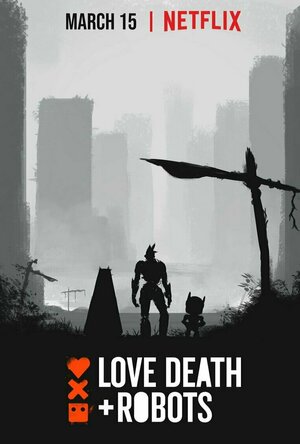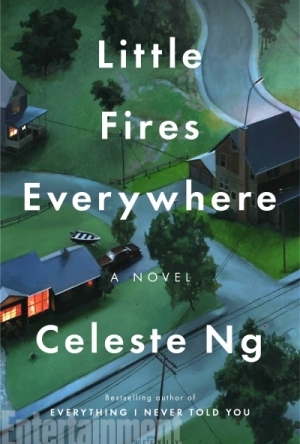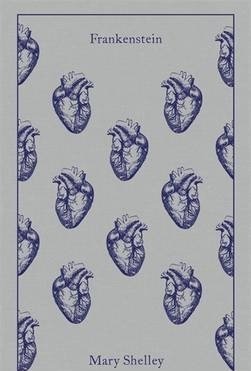Search
Mark @ Carstairs Considers (2474 KP) rated Murder in Chinatown in Books
Aug 18, 2019
Missing Girl Leads to Murder
After a recent close call, midwife Sarah Brandt has vowed to stay away from solving crimes and getting involved in anything dangerous. However, she is in Chinatown with the Lee family since Cora Lee is about to give birth and gets a front row to the family drama unfolding. Cora’s niece, Angel, is upset that her father has arranged a marriage for her to an older man and runs away. The family is frantic to find her because the city is no place for a fifteen-year-old to be alone. While the family does find her, she turns up dead a few days later. Sarah manages to get NYPD Detective Sergeant Frank Malloy involved in the case because she fears other police won’t care to fully investigate given who the victim was. But can Malloy figure it out? Will Sarah get involved despite her promise to stay away from murder?
Once again, we are expertly transported back to 1890’s New York City. Along with our normal glimpses of life during the time period, we get to see a bit of how the Chinese were treated during the time; unfortunately, it isn’t pretty. However, the book never stops to preach at us, instead working this in during the mystery. The case itself is strong with plenty of twists to keep us entertained until the end. I thought I had a few things figured out, but I discovered I was wrong when I reached the logical ending. Sarah, in her efforts to stay out of the case, isn’t quite as involved as Frank, but she still has plenty to contribute. Both are great lead characters, and I enjoyed spending time with the regular supporting players as well as meeting the new characters introduced here. We get some advancement on a couple of on-going storylines, and it looks like one of them will be the main focus of the next in the series. I’m definitely looking forward to seeing where that leads.
Once again, we are expertly transported back to 1890’s New York City. Along with our normal glimpses of life during the time period, we get to see a bit of how the Chinese were treated during the time; unfortunately, it isn’t pretty. However, the book never stops to preach at us, instead working this in during the mystery. The case itself is strong with plenty of twists to keep us entertained until the end. I thought I had a few things figured out, but I discovered I was wrong when I reached the logical ending. Sarah, in her efforts to stay out of the case, isn’t quite as involved as Frank, but she still has plenty to contribute. Both are great lead characters, and I enjoyed spending time with the regular supporting players as well as meeting the new characters introduced here. We get some advancement on a couple of on-going storylines, and it looks like one of them will be the main focus of the next in the series. I’m definitely looking forward to seeing where that leads.

Trivisa (2016)
Movie
In early 1997, mobsters Kwai Ching-hung, Yip Kwok-foon and Cheuk Tze-keung, whom have never met one...
LeftSideCut (3776 KP) rated Love, Death & Robots - Season 1 in TV
Apr 9, 2020
The beauty of Love, Death and Robots is it's format. An eclectic collection of animated short films, some genuinely brilliant, with a handful of duds, truly gives something for everyone.
There are 18 films on show here, all with something different to offer.
Firstly there were 3 that failed to really resonate with me - Sucker of Souls, When the Yoghurt Took Over, and Alternate Histories. I found these three either slightly boring, or silly for the sake of being silly. There were 2 that sort of floated in the middle - The Dump, and Blind Spot, not bad by any means (none of the shorts are truly bad) but just were sort of there.
Leaving a grand total of 13 shorts that I thought were really really great.
A handful of these realistic CGI entries - namely, Sonnie's Edge, Three Robots, Beyond the Aquila Rift, Shape Shifters (one of the highlights for me), Helping Hand (reminded me of Gravity, in a great way), Lucky 13, and The Secret War.
These lot are lengthier offerings, and boast some good looking CGI animation, bordering on photo realism at times. The run time gives an opportunity for some decent fleshed out stories.
The Secret War in particular is nothing short of breath taking, and may well be my top pick of the whole season.
Elsewhere, we have more cartoony offerings - Suits, a loud animation that features farmers in mech suits fighting aliens. Zima Blue, a beautifully touching story of how a simple robot transcends existence itself - another highlight of the season. Fish Night, a short desert based drama bursting with colour. The animation of this one reminded me of A Scanner Darkly. Good Hunting, a collision of Ancient Chinese stories and a Bioshock style steampunk future. Hard to watch at times, but stunning also - easily would have been my top pick if The Secret War wasn't included.
Rounding it off we have The Witness, and animation that looks like a moving oil painting and reminded me of Mirror's Edge, and Ice Age, a fun short that's the only live action inclusion with CGI flourishes about a civilisation growing in a couple freezer.
It's an ambitious collection of shorts for sure, but like I said, there's something here for everyone. Even the ones that I liked the least are a 6/10 at worst. If you like sci-fi or animation in any shape or form, then check this series out.
There are 18 films on show here, all with something different to offer.
Firstly there were 3 that failed to really resonate with me - Sucker of Souls, When the Yoghurt Took Over, and Alternate Histories. I found these three either slightly boring, or silly for the sake of being silly. There were 2 that sort of floated in the middle - The Dump, and Blind Spot, not bad by any means (none of the shorts are truly bad) but just were sort of there.
Leaving a grand total of 13 shorts that I thought were really really great.
A handful of these realistic CGI entries - namely, Sonnie's Edge, Three Robots, Beyond the Aquila Rift, Shape Shifters (one of the highlights for me), Helping Hand (reminded me of Gravity, in a great way), Lucky 13, and The Secret War.
These lot are lengthier offerings, and boast some good looking CGI animation, bordering on photo realism at times. The run time gives an opportunity for some decent fleshed out stories.
The Secret War in particular is nothing short of breath taking, and may well be my top pick of the whole season.
Elsewhere, we have more cartoony offerings - Suits, a loud animation that features farmers in mech suits fighting aliens. Zima Blue, a beautifully touching story of how a simple robot transcends existence itself - another highlight of the season. Fish Night, a short desert based drama bursting with colour. The animation of this one reminded me of A Scanner Darkly. Good Hunting, a collision of Ancient Chinese stories and a Bioshock style steampunk future. Hard to watch at times, but stunning also - easily would have been my top pick if The Secret War wasn't included.
Rounding it off we have The Witness, and animation that looks like a moving oil painting and reminded me of Mirror's Edge, and Ice Age, a fun short that's the only live action inclusion with CGI flourishes about a civilisation growing in a couple freezer.
It's an ambitious collection of shorts for sure, but like I said, there's something here for everyone. Even the ones that I liked the least are a 6/10 at worst. If you like sci-fi or animation in any shape or form, then check this series out.
Amanda (96 KP) rated Little Fires Everywhere in Books
Mar 21, 2019
I was so close to putting this book on my DNF list. The beginning of it was SO slow that I found myself spacing out and then remembering that I was listening to a book.
Obviously, I'm writing a review on it, so of course, I DID NOT put it on my DNF list. It took quite a few chapters (roughly five I think) to really get into the story and by then, I was completely hooked.
There are several stories going on.
The Richardsons rent out a house to a single mother, Mia Warren with her daughter Pearl. The Richardsons are friends with another family who are in the process of adopting a Chinese-American baby, but the process is paused when the mother comes forward wanting her daughter back. The husband, Mr. Richardson, is a lawyer representing the family who want to keep the baby and Mrs. Richardson basically tries to do some investigating of her own, including finding out things about her tenants past and what she has done to cause this drama for her best friends.
The theme of it all centers around a baby. Not just one baby, but that's the whole premise of the story.
One family wants to adopt the Chinese baby they renamed Mirabelle (I'm sorry, but I really don't like that name, or the reason WHY they changed it) and then the mother coming forward wanting her baby back. Now, the mother left her baby at a fire house cause she was not the right state to take care of her. If someone hadn't tipped her off as to where her baby was, then maybe this whole thing could have been avoided.
I struggled with not yelling at when the woman says the family is stealing her baby. No, they are not. They adopted her when she was left at a fire house. That is a thing that women in her state CAN do. If they cannot afford resources available (cost wise) they can leave their baby with a hospital or a fire house no questions asked. That also means that you give up parental rights. Granted, there should be some sort of grace period, but you cannot say this family stole your baby, because they didn't!
One teenager in the story finds out she's pregnant from her boyfriend and I just cannot fathom her snobby naivete attitude. She swoons over Mirabelle because she's so cute. I'll give you that, babies are cute. But then she starts to fantasize that her and her also teenage boyfriend could work it out and their parents would take care of the baby while at college. Yeah, okay! Reality does hit her hard though, but I won't say how, but it does and I almost feel bad for her, but not quite.
Then there's someone who agreed to be a surrogate and winds up stealing the baby before it was born. Now, technically, that woman did steal a baby. Granted, it's biologically yours, but she agreed, verbally and legally, to be this couple's surrogate. I'm not entirely sure I could do it, cause I really don't want to go through the whole pregnancy, but I can't speak for other women who go into the surrogacy and then start to regret it later. I don't know.
I'm now just babbling. Despite the slow beginning, I can definitely see why this book had as much hype as it did when it was published. It really gets you thinking about different perspectives of motherhood, biological or not. The story is told as if someone was indeed telling a story to a group of people. Almost like when someone is narrating a play and you're watching it as it unfolds before your eyes.
I do look forward to seeing about Celeste Ng's previous novels. This story may be sensitive to some people who have gone through any of these scenarios because I think some things that happen later, could very well get emotional. The story is great, but also keep that in mind if you are at all familiar with these kinds of stories.
Obviously, I'm writing a review on it, so of course, I DID NOT put it on my DNF list. It took quite a few chapters (roughly five I think) to really get into the story and by then, I was completely hooked.
There are several stories going on.
The Richardsons rent out a house to a single mother, Mia Warren with her daughter Pearl. The Richardsons are friends with another family who are in the process of adopting a Chinese-American baby, but the process is paused when the mother comes forward wanting her daughter back. The husband, Mr. Richardson, is a lawyer representing the family who want to keep the baby and Mrs. Richardson basically tries to do some investigating of her own, including finding out things about her tenants past and what she has done to cause this drama for her best friends.
The theme of it all centers around a baby. Not just one baby, but that's the whole premise of the story.
One family wants to adopt the Chinese baby they renamed Mirabelle (I'm sorry, but I really don't like that name, or the reason WHY they changed it) and then the mother coming forward wanting her baby back. Now, the mother left her baby at a fire house cause she was not the right state to take care of her. If someone hadn't tipped her off as to where her baby was, then maybe this whole thing could have been avoided.
I struggled with not yelling at when the woman says the family is stealing her baby. No, they are not. They adopted her when she was left at a fire house. That is a thing that women in her state CAN do. If they cannot afford resources available (cost wise) they can leave their baby with a hospital or a fire house no questions asked. That also means that you give up parental rights. Granted, there should be some sort of grace period, but you cannot say this family stole your baby, because they didn't!
One teenager in the story finds out she's pregnant from her boyfriend and I just cannot fathom her snobby naivete attitude. She swoons over Mirabelle because she's so cute. I'll give you that, babies are cute. But then she starts to fantasize that her and her also teenage boyfriend could work it out and their parents would take care of the baby while at college. Yeah, okay! Reality does hit her hard though, but I won't say how, but it does and I almost feel bad for her, but not quite.
Then there's someone who agreed to be a surrogate and winds up stealing the baby before it was born. Now, technically, that woman did steal a baby. Granted, it's biologically yours, but she agreed, verbally and legally, to be this couple's surrogate. I'm not entirely sure I could do it, cause I really don't want to go through the whole pregnancy, but I can't speak for other women who go into the surrogacy and then start to regret it later. I don't know.
I'm now just babbling. Despite the slow beginning, I can definitely see why this book had as much hype as it did when it was published. It really gets you thinking about different perspectives of motherhood, biological or not. The story is told as if someone was indeed telling a story to a group of people. Almost like when someone is narrating a play and you're watching it as it unfolds before your eyes.
I do look forward to seeing about Celeste Ng's previous novels. This story may be sensitive to some people who have gone through any of these scenarios because I think some things that happen later, could very well get emotional. The story is great, but also keep that in mind if you are at all familiar with these kinds of stories.
Becca Major (96 KP) rated Love O2O in TV
Jan 21, 2019
Characters (Main and Side) (2 more)
The Story
I like the basic premise.
A Simple Meet-Cute
Contains spoilers, click to show
One of the best things about Netflix is that there are a plethora of media that would otherwise be practically unavailable for viewing otherwise. For me, that primarily means Asian dramas, though I know many people discovered anime or other foreign television the same way. One of the most recent shows I watched via Netflix was a 2016 Chinese drama called Love 020. While it is not my favorite drama ever (that distinction belongs to Bromance) it is pretty good.
The story follows university students Bei Weiwei and Xiao Nai, who are computer technology majors at Qing University and both have a passion for game design. One day Weiwei has to log into her preferred MMORPG from a public computer and is spotted by Nai. He later finds her in-game and they begin a relationship between their characters. It isn’t long before Weiwei and Nai begin to develop real feelings, and Nai goes out of his way to pass by Weiwei in real life. Their eventual official IRL meeting is sufficiently exciting.
The best part is that Xiao Nai, while ruffling a few of my feathers for his more stalker-y actions, is not an asshole! He is nice to Weiwei from the start and is a devoted and engaged boyfriend. Weiwei herself is smart and sassy, though aloof online. One of my favorite scenes involves her putting her ex-in-game-husband in his place once they meet IRL. It also doesn’t help that these two are practically the perfect couple.
All of the characters, in fact, are fairly interesting. Both sets of roommates have different but very dynamic relationships with each other; it feels very organic. My personal favorites were K.O, Hao Mei, and Weiwei’s roommate Erxi. Though my attachments may be because they are the central characters to my favorite side-plots. If there was a character I had to choose to dislike, it would probably be Nana, the character who does the most bad in the plot but doesn’t suffer any real consequences for her actions.
I don’t want to spoil the ending for you, but most of my criticisms concern how the story wraps up, so if you want to watch the series, then go for it! It is a very simple, easy story that hits all the right buttons if you just finished a heart-wringer.
|SPOILERS|
My main points of contention with Love O2O stem almost entirely from the way the series ends. As a brief summary, Xiao Nai’s game development company goes head to head with a rival, more established company, over the right to develop a particular game that both companies really really want, and (extra spoilers) they win. The side-plot of Erxi and Cao Guang comes to a head as the two realize the misunderstanding that’s been happening for the last few months. And Hao Mei still doesn’t realize that K.O has a huge crush on him!
Ordinarily, I wouldn’t mind this ending because it flows with the narrative, every story thread is tied, and it ends on a happy note with the main couple en-route to a wedding. It’s just… Where are the stakes?! The tension, where it exists, doesn’t stem from Xiao Nai or Weiwei or their relationship with each other, like what happens in most other dramas that I watch. Almost all of that drama and tension seemed to be relegated to other characters.
Everything is wrapped up so easily, the antagonists (for what little they did to advance the plot) simply admitted to the leads that they were wrong and they’re sorry. Additionally, the final “threat” that Xiao Nai and Weiwei face is meeting Weiwei’s parents, in which Weiwei’s father doesn’t like Nai because of course he doesn’t; and that is solved easily by Nai reminiscing with his future father-in-law about Weiwei as a child and how adorable their future children will be.
I wish I could have enjoyed this series a lot more than I did, but the ending means a lot for me because it’s the last thing I tend to remember, and the emotions that go with those endings tend to stick. So, yes I enjoyed this series, but the ending left a disappointing aftertaste.
The story follows university students Bei Weiwei and Xiao Nai, who are computer technology majors at Qing University and both have a passion for game design. One day Weiwei has to log into her preferred MMORPG from a public computer and is spotted by Nai. He later finds her in-game and they begin a relationship between their characters. It isn’t long before Weiwei and Nai begin to develop real feelings, and Nai goes out of his way to pass by Weiwei in real life. Their eventual official IRL meeting is sufficiently exciting.
The best part is that Xiao Nai, while ruffling a few of my feathers for his more stalker-y actions, is not an asshole! He is nice to Weiwei from the start and is a devoted and engaged boyfriend. Weiwei herself is smart and sassy, though aloof online. One of my favorite scenes involves her putting her ex-in-game-husband in his place once they meet IRL. It also doesn’t help that these two are practically the perfect couple.
All of the characters, in fact, are fairly interesting. Both sets of roommates have different but very dynamic relationships with each other; it feels very organic. My personal favorites were K.O, Hao Mei, and Weiwei’s roommate Erxi. Though my attachments may be because they are the central characters to my favorite side-plots. If there was a character I had to choose to dislike, it would probably be Nana, the character who does the most bad in the plot but doesn’t suffer any real consequences for her actions.
I don’t want to spoil the ending for you, but most of my criticisms concern how the story wraps up, so if you want to watch the series, then go for it! It is a very simple, easy story that hits all the right buttons if you just finished a heart-wringer.
|SPOILERS|
My main points of contention with Love O2O stem almost entirely from the way the series ends. As a brief summary, Xiao Nai’s game development company goes head to head with a rival, more established company, over the right to develop a particular game that both companies really really want, and (extra spoilers) they win. The side-plot of Erxi and Cao Guang comes to a head as the two realize the misunderstanding that’s been happening for the last few months. And Hao Mei still doesn’t realize that K.O has a huge crush on him!
Ordinarily, I wouldn’t mind this ending because it flows with the narrative, every story thread is tied, and it ends on a happy note with the main couple en-route to a wedding. It’s just… Where are the stakes?! The tension, where it exists, doesn’t stem from Xiao Nai or Weiwei or their relationship with each other, like what happens in most other dramas that I watch. Almost all of that drama and tension seemed to be relegated to other characters.
Everything is wrapped up so easily, the antagonists (for what little they did to advance the plot) simply admitted to the leads that they were wrong and they’re sorry. Additionally, the final “threat” that Xiao Nai and Weiwei face is meeting Weiwei’s parents, in which Weiwei’s father doesn’t like Nai because of course he doesn’t; and that is solved easily by Nai reminiscing with his future father-in-law about Weiwei as a child and how adorable their future children will be.
I wish I could have enjoyed this series a lot more than I did, but the ending means a lot for me because it’s the last thing I tend to remember, and the emotions that go with those endings tend to stick. So, yes I enjoyed this series, but the ending left a disappointing aftertaste.

Voot TV Shows Movies Cartoons
Entertainment
App
Voot is a mobile-first video on demand platform, part of Viacom18 Digital Ventures, the digital arm...
Movie Metropolis (309 KP) rated The Great Wall (2016) in Movies
Jun 11, 2019
Disappointingly Pedestrian
Acclaimed director Zhang Yimou has been at the helm of some of China’s greatest film assets. 1991’s Raise the Red Lantern is widely regarded as one of the defining foreign-language films of its period and 2004’s House of Flying Daggers received huge critical acclamation for its stunning cinematography and exceptional script.
Here, Yimou teams up with one of Hollywood’s greatest assets, Matt Damon in a monster flick to rival all others. But does The Great Wall showcase the very best from its director and leading man?
When a mercenary warrior on the run from a group of bandits (Matt Damon) is imprisoned within China’s magnificent Great Wall, he discovers the mystery behind one of the greatest wonders of the world. As surge after surge of snarling, prowling beasts called Taotie besiege the massive construction, his quest for immeasurable fortune turns into a journey toward heroism. He joins a vast army of elite Chinese soldiers to confront the unimaginable and seemingly unstoppable force.
Unfortunately, The Great Wall squanders the talents of both Damon and Yimou with an unnecessarily dense script overriding any sense of drama. To be honest, it’s all just a bit of a bore.
The cast is fine but so vast that Damon and Jin Tian, who we will see again very soon in Kong: Skull Island, are the only stars to make any sort of impact. Even then, a poor script stops them from being anything but cardboard cut-outs. There is no character development whatsoever. In fact, as I write this paragraph I nearly forgot to mention Willem Dafoe. He makes no impact on the final outcome at all.
Elsewhere, the special effects range from laughably poor to adequate and certainly not befitting of a film costing well over $200million. The wall itself is rendered in decent CGI and the numerous battle scenes have a reasonably immersive feel, but the Taotie lacks realism and as the main antagonists throughout, this is a serious problem.
The cinematography too is not up to the standard of Yimou’s previous works. Relying far too heavily on green screen, it wastes his incredible eye for detail and continuously feels like you’re sat watching a very expensive video game. As with last year’s Gods of Egypt, there’s a certain glossy quality to the picture that dominates and this is what stops it being believable.
Nevertheless, the music is very good indeed. Ramin Djawadi has scored big budget blockbusters like Iron Man and Pacific Rim with The Great Wall taking a few influences from the latter. It’s definitely the saving grace here and alleviates a couple of the shortcomings.
Overall, The Great Wall is a film unworthy of the talent both behind and in front of the lens. It’s crammed full of poor CGI and uninspiring cinematography, though its great score is unquestionably a highlight. With such good subject matter, it feels like a bit of a wasted opportunity.
https://moviemetropolis.net/2017/02/18/the-great-wall-disappointingly-pedestrian/
Here, Yimou teams up with one of Hollywood’s greatest assets, Matt Damon in a monster flick to rival all others. But does The Great Wall showcase the very best from its director and leading man?
When a mercenary warrior on the run from a group of bandits (Matt Damon) is imprisoned within China’s magnificent Great Wall, he discovers the mystery behind one of the greatest wonders of the world. As surge after surge of snarling, prowling beasts called Taotie besiege the massive construction, his quest for immeasurable fortune turns into a journey toward heroism. He joins a vast army of elite Chinese soldiers to confront the unimaginable and seemingly unstoppable force.
Unfortunately, The Great Wall squanders the talents of both Damon and Yimou with an unnecessarily dense script overriding any sense of drama. To be honest, it’s all just a bit of a bore.
The cast is fine but so vast that Damon and Jin Tian, who we will see again very soon in Kong: Skull Island, are the only stars to make any sort of impact. Even then, a poor script stops them from being anything but cardboard cut-outs. There is no character development whatsoever. In fact, as I write this paragraph I nearly forgot to mention Willem Dafoe. He makes no impact on the final outcome at all.
Elsewhere, the special effects range from laughably poor to adequate and certainly not befitting of a film costing well over $200million. The wall itself is rendered in decent CGI and the numerous battle scenes have a reasonably immersive feel, but the Taotie lacks realism and as the main antagonists throughout, this is a serious problem.
The cinematography too is not up to the standard of Yimou’s previous works. Relying far too heavily on green screen, it wastes his incredible eye for detail and continuously feels like you’re sat watching a very expensive video game. As with last year’s Gods of Egypt, there’s a certain glossy quality to the picture that dominates and this is what stops it being believable.
Nevertheless, the music is very good indeed. Ramin Djawadi has scored big budget blockbusters like Iron Man and Pacific Rim with The Great Wall taking a few influences from the latter. It’s definitely the saving grace here and alleviates a couple of the shortcomings.
Overall, The Great Wall is a film unworthy of the talent both behind and in front of the lens. It’s crammed full of poor CGI and uninspiring cinematography, though its great score is unquestionably a highlight. With such good subject matter, it feels like a bit of a wasted opportunity.
https://moviemetropolis.net/2017/02/18/the-great-wall-disappointingly-pedestrian/

iHuman Books
Education and Book
App
We help kids fall in love with reading! iHuman Books presents a full package of engaging reading...
Sass Perilla (36 KP) rated Frankenstein in Books
Aug 9, 2019
The plot and major themes. (1 more)
Further work it inspired.
Readable, but disjointed and repetitive in parts.
Contains spoilers, click to show
Fundamentally, the problem with this book is the narrator, Victor. He is thoroughly detestable. A selfish, cowardly, irresponsible, excuse ridden, narcissistic d****e-bag of the highest order. And unfortunately, it is Victor Frankenstein’s POV that we are forced into for the majority of the novel.
My hatred for and frustration with the self-pitying, feckless behaviour of the (pseudo)
protagonist made this an irritating read for me- and to an extent I think this was Shelley’s intention. Victor isn’t designed to be the likable, affable, morally “good” man fallen from grace he believes himself to be, and the horrific events that befall those around him are of his making.
However, this doesn’t make him any less grating! The "monster" (to me reminiscent of Caliban with his lyrical speech and enforced isolation, being neither man nor not man) is eloquent and persuasive when he asks his creator to account for his misdoings. So, you’ve got to ask yourself, if an infanticidal, demonic, bag of sew together corpses is actually more engaging than the main storyteller, is that storyteller really the
right character to be telling the story?
Now, with all that said, it is an important book. A work by a female author with strong female characters (albeit background characters) who was only nineteen when she wrote the initial draft. Very impressive. But, for me her youth is evident. When we teach secondary school pupils to write creatively, we often give them the ambiguous instruction “show don’t tell”, and for me the book is more of a list of horrible and horrific events told in a Chinese puzzle box style story within a story, rather than an engaging and “complete” narrative. It feels like she chooses to place focus on the wrong “bits”- for example the whole of chapter nineteen where Victor travels the British Isles, comments briefly on the local architecture of each town and city and
then repetitively reminds us that he couldn’t enjoy the surroundings because of his angst.
And I would have at least like to have seen some of the courtroom drama when Victor is tried for the death of Clerval...
So, I hate to be “that” gal, who poo-poos these fantastic works of fiction (we know they’re great because some clever-britches told us they were) but in all honesty, the novel ain’t that good, and I’ll maintain that stance no matter how clever the britches of the opposing schools of thought.
I think the continuing appeal is in it’s universal themes: parenting, nature versus
nurture; morality and scientific advancement- and the whole idea of stitching a creature out of
corpse-parts and electrocuting it to life is pretty darn cool. And there are some really effective
horror scenes, such as the vignette of Victor ripping apart project lady-monster (I kind wish she had a name- a working title- but given he can’t even be bothered to name monster number one I guess this was all too much to hope for).
It’s readable, but it’s value, for me at any rate, lies in the offshoots and creativity it has spawned, rather than the work itself.
My hatred for and frustration with the self-pitying, feckless behaviour of the (pseudo)
protagonist made this an irritating read for me- and to an extent I think this was Shelley’s intention. Victor isn’t designed to be the likable, affable, morally “good” man fallen from grace he believes himself to be, and the horrific events that befall those around him are of his making.
However, this doesn’t make him any less grating! The "monster" (to me reminiscent of Caliban with his lyrical speech and enforced isolation, being neither man nor not man) is eloquent and persuasive when he asks his creator to account for his misdoings. So, you’ve got to ask yourself, if an infanticidal, demonic, bag of sew together corpses is actually more engaging than the main storyteller, is that storyteller really the
right character to be telling the story?
Now, with all that said, it is an important book. A work by a female author with strong female characters (albeit background characters) who was only nineteen when she wrote the initial draft. Very impressive. But, for me her youth is evident. When we teach secondary school pupils to write creatively, we often give them the ambiguous instruction “show don’t tell”, and for me the book is more of a list of horrible and horrific events told in a Chinese puzzle box style story within a story, rather than an engaging and “complete” narrative. It feels like she chooses to place focus on the wrong “bits”- for example the whole of chapter nineteen where Victor travels the British Isles, comments briefly on the local architecture of each town and city and
then repetitively reminds us that he couldn’t enjoy the surroundings because of his angst.
And I would have at least like to have seen some of the courtroom drama when Victor is tried for the death of Clerval...
So, I hate to be “that” gal, who poo-poos these fantastic works of fiction (we know they’re great because some clever-britches told us they were) but in all honesty, the novel ain’t that good, and I’ll maintain that stance no matter how clever the britches of the opposing schools of thought.
I think the continuing appeal is in it’s universal themes: parenting, nature versus
nurture; morality and scientific advancement- and the whole idea of stitching a creature out of
corpse-parts and electrocuting it to life is pretty darn cool. And there are some really effective
horror scenes, such as the vignette of Victor ripping apart project lady-monster (I kind wish she had a name- a working title- but given he can’t even be bothered to name monster number one I guess this was all too much to hope for).
It’s readable, but it’s value, for me at any rate, lies in the offshoots and creativity it has spawned, rather than the work itself.
Lucy Buglass (45 KP) rated Crazy Rich Asians (2018) in Movies
Jun 20, 2019
A Rom-Com with Substance
Yes, I know what you’re thinking. This isn’t really the kind of film I’m particularly fond of. Everything about it screams ‘cheesy rom-com’, just look at that poster. But, I’m happy to say I walked away from this film feeling so glad that I had watched it. This is a classic example of not judging a film by its poster or trailer, as it has so much more to offer.
As the title of my review suggests, I mainly loved this film because of the overall narrative. There’s a lot of character development and dark secrets, meaning your interest is constantly held throughout the film. You really start to care about these characters and their lives, and I didn’t feel like anyone was just thrown in there for the sake of it. The dynamics between characters is really well done and realistic, and it’s very easy for you to quickly love or hate them. I was so impressed by the quality of the acting, and how each actor brought their characters to life on screen. I was especially blown away by Michelle Yeoh and Gemma Chan, for very different reasons. I was also happy to see an all-Asian cast in a mainstream film, as we still have a lot to do when it comes to wider representation and films like this are a huge step in the right direction.
I also feel like people could identify with some of the themes, especially this idea of a class divide and feeling unwelcome. It was so eye-opening to see how some people are shunned by families because of their social status, and how important it is for families to protect their name and heritage at all costs. Whilst Crazy Rich Asians shows an extreme version of this type of behaviour, class divides are prevalent across the world so this was a really interesting theme to explore. This theme is one of the reasons why I felt this film had so much substance, as it goes beyond simply being just another rom-com and shows us some serious, real-life issues instead. There are some scenes in Crazy Rich Asians that are far from comedic, and shows us a darker side to life within a wealthy, influential circle. The results are as dark as you’d expect. I don’t want to give any spoilers – experience it for yourself instead.
As for the comedy, it was genuinely laugh-out-loud funny. I am always apprehensive with comedy films as sometimes it can become too ridiculous and slapstick, but Crazy Rich Asians was satirical and smart, with some silly moments thrown in there too. I’m so impressed with how they blended humour with drama this effortlessly. It knows how to balance this without going too far one way, and the result is an incredibly well-rounded and three dimensional film that made me laugh and cry in equal measure. It’s a truly captivating film from start to finish.
Visually, it’s a stunning piece of cinema. You’re greeted with bright colours, gorgeous set design, and you’re transported to a world of luxury and Chinese culture, with these hostile undertones. On the big screen it’s even better, because you get to experience this gorgeous film on a large scale. It’s hard to take your eyes off it. I’m looking forward to revisiting this film in future so I can look for more details the second time around, as I’m sure I missed stuff during my initial viewing!
If this is the future of rom-com, consider me converted. I was so impressed by the overall film and would recommend it to anyone. Please don’t let the title and synopsis put you off, it’s such a smart, funny, heartbreaking film and I urge you to give it a go. You might end up as surprised as me!
https://lucygoestohollywood.com/2018/09/16/a-rom-com-with-substance-my-thoughts-on-crazy-rich-asians/
As the title of my review suggests, I mainly loved this film because of the overall narrative. There’s a lot of character development and dark secrets, meaning your interest is constantly held throughout the film. You really start to care about these characters and their lives, and I didn’t feel like anyone was just thrown in there for the sake of it. The dynamics between characters is really well done and realistic, and it’s very easy for you to quickly love or hate them. I was so impressed by the quality of the acting, and how each actor brought their characters to life on screen. I was especially blown away by Michelle Yeoh and Gemma Chan, for very different reasons. I was also happy to see an all-Asian cast in a mainstream film, as we still have a lot to do when it comes to wider representation and films like this are a huge step in the right direction.
I also feel like people could identify with some of the themes, especially this idea of a class divide and feeling unwelcome. It was so eye-opening to see how some people are shunned by families because of their social status, and how important it is for families to protect their name and heritage at all costs. Whilst Crazy Rich Asians shows an extreme version of this type of behaviour, class divides are prevalent across the world so this was a really interesting theme to explore. This theme is one of the reasons why I felt this film had so much substance, as it goes beyond simply being just another rom-com and shows us some serious, real-life issues instead. There are some scenes in Crazy Rich Asians that are far from comedic, and shows us a darker side to life within a wealthy, influential circle. The results are as dark as you’d expect. I don’t want to give any spoilers – experience it for yourself instead.
As for the comedy, it was genuinely laugh-out-loud funny. I am always apprehensive with comedy films as sometimes it can become too ridiculous and slapstick, but Crazy Rich Asians was satirical and smart, with some silly moments thrown in there too. I’m so impressed with how they blended humour with drama this effortlessly. It knows how to balance this without going too far one way, and the result is an incredibly well-rounded and three dimensional film that made me laugh and cry in equal measure. It’s a truly captivating film from start to finish.
Visually, it’s a stunning piece of cinema. You’re greeted with bright colours, gorgeous set design, and you’re transported to a world of luxury and Chinese culture, with these hostile undertones. On the big screen it’s even better, because you get to experience this gorgeous film on a large scale. It’s hard to take your eyes off it. I’m looking forward to revisiting this film in future so I can look for more details the second time around, as I’m sure I missed stuff during my initial viewing!
If this is the future of rom-com, consider me converted. I was so impressed by the overall film and would recommend it to anyone. Please don’t let the title and synopsis put you off, it’s such a smart, funny, heartbreaking film and I urge you to give it a go. You might end up as surprised as me!
https://lucygoestohollywood.com/2018/09/16/a-rom-com-with-substance-my-thoughts-on-crazy-rich-asians/






